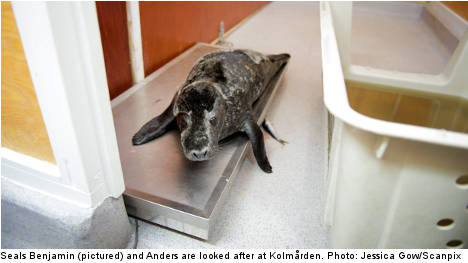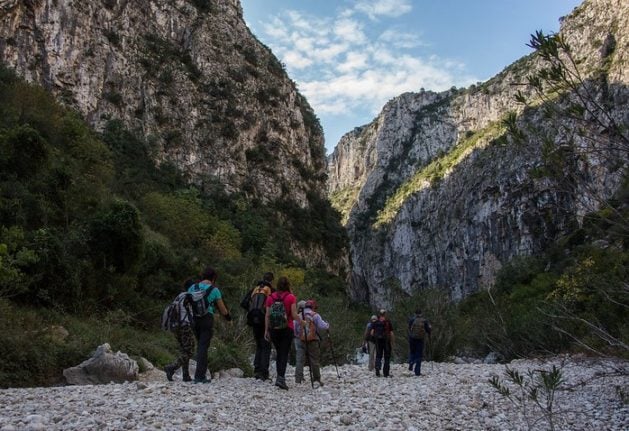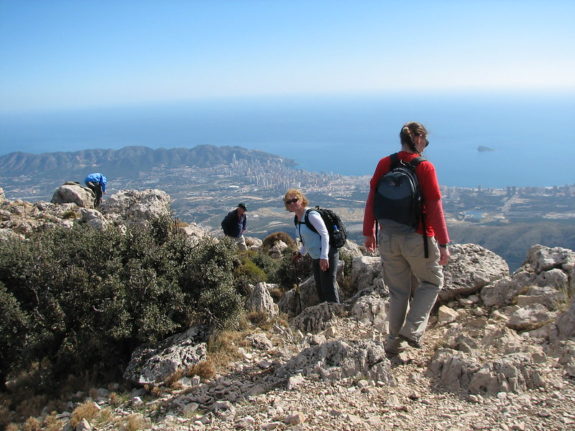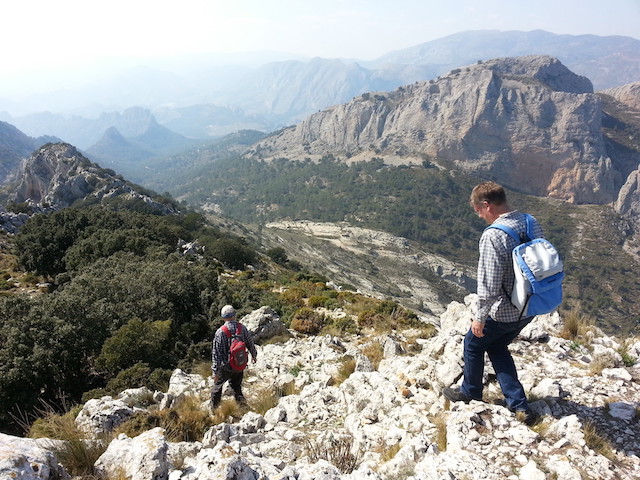Kolmården wants to keep the pups, which carers have named Anders and Benjamin, but the law says that wild animals can only be taken in for a maximum of 48 hours. After that, they have to be released.
“They would never make it in the wild now, not a chance,” Mats Höggren, Kolmården’s chief zoologist, told news agency TT.
“We want an exemption from the law. We have started feeding them fish and would like to keep them here until late spring when they will weigh around 40 to 50 kilos. Then we would attach GPS trackers to them and place them in the St Anna archipelago,” said Höggren.
Local police handed the seal pups over to the Kolmården animal park after members of the public spotted them.
One of the pups, now named Anders, was found on a bike path in Oxelösund in south-east Sweden just before Easter. The second, named Benjamin, was discovered in central Norrköping, the nearest town to Kolmården, on Easter Monday.
“We know that we are breaking the law but we will not contribute to these pups’ death. Our own county administration has tried to take over responsibility for the case but the request was denied,” said Höggren.
The Environmental Protection Agency will make a decision about Kolmården’s exemption request by Monday at the latest. Meanwhile, the pups will stay at the park but if the request is rejected they will be removed.
“In that case we will have to find a solution as to who will do it and how,” said Ruona Bergman, wildlife coordinator at the Environmental Protection Agency.
Anders and Benjamin are currently living in separate boxes at Kolmården’s veterinary clinic. They are kept in isolation so that they do not get used to being around humans.
“What’s important now is that they eat and rest. Now that we have gotten involved with love and resources we want to complete our commitment,” said Höggren.
He is hopeful about the pups’ futures. “I am certain we will be granted an exemption,” he said.
The case has gotten a lot of attention and Höggren believes this will work in Kolmården’s – and the pups’ – favour.
“People are so emotional when it comes to animals. These seals are vulnerable and cute.”
TT/The Local/nr Follow The Local on Twitter





 Please whitelist us to continue reading.
Please whitelist us to continue reading.
Member comments